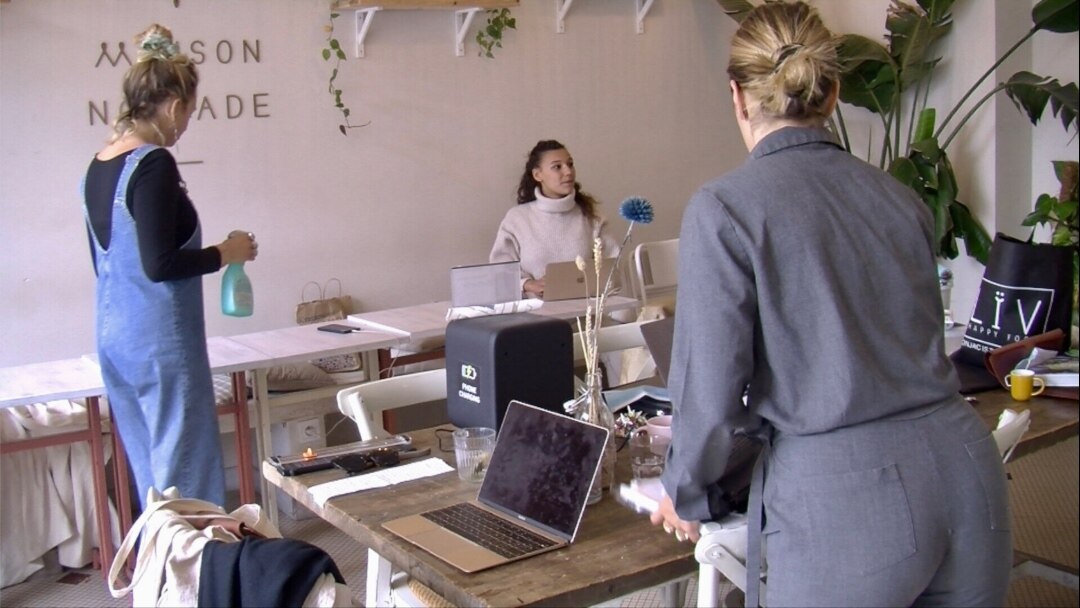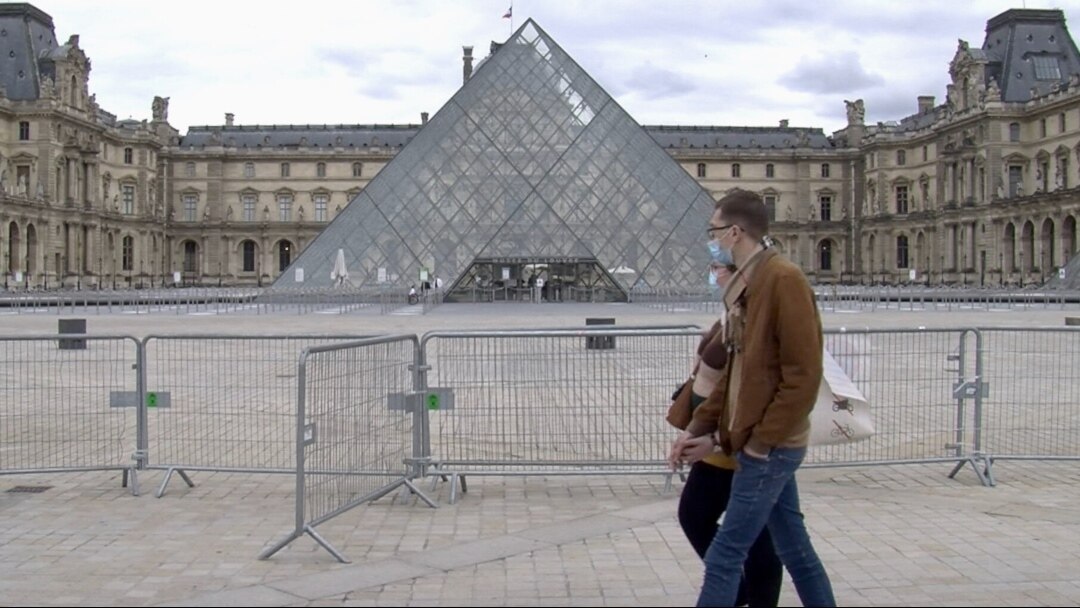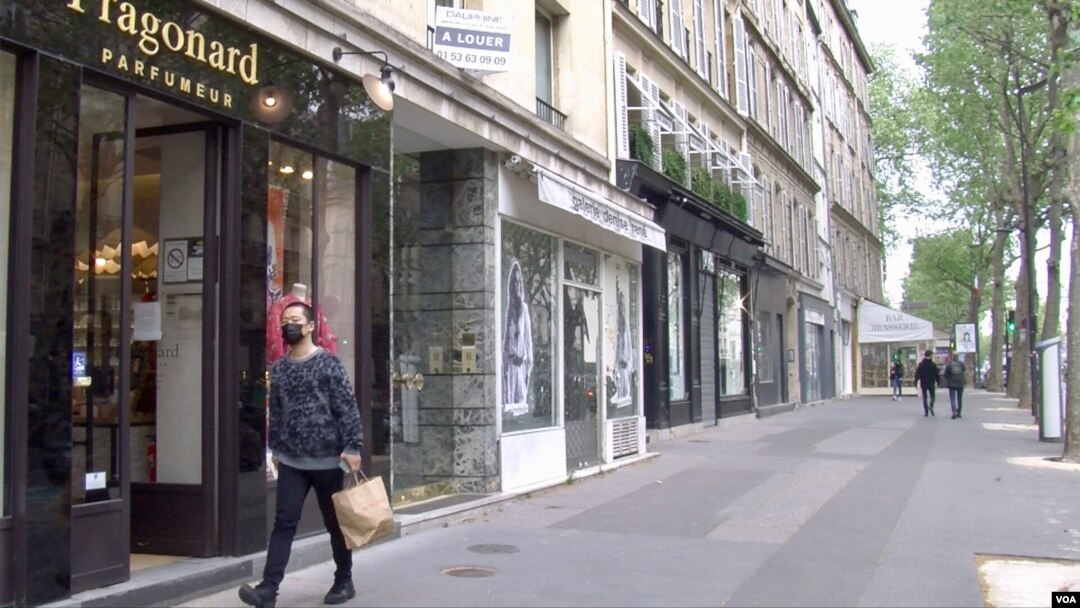After dark months struggling with the coronavirus pandemic, Europe is finally hitting its stride, with vaccinations and economies picking up, countries emerging from lockdowns, and even opening their borders to foreign tourists.
For Maison Nomade, the recent journey under France’s lockdown has been tough.
Now, this vegetarian restaurant in northern Paris is finally reopening. Staff members idled by the pandemic are scrambling to get things ready.

Staff at Maison Nomade restaurant prepare for its reopening next Wednesday. The EU has notched up the region's growth predictions for this year. (Lisa Bryant/VOA)
“It’s been pretty hard to be closed for that long, but we’re very excited, a little bit stressed, and we’re really looking forward to opening the restaurant again," said Allison Lamotte, the restaurant’s co-owner.
"And we hope this time it will last forever, and we won’t have to close again, because it’s been hard.”
That’s a sentiment shared by many other French businesses, as coronavirus restrictions start easing. Next Wednesday, outdoor terraces of restaurants and bars are reopening for the first time in months — although at half capacity — along with museums and shops.
Other European countries are reopening even faster … sparking celebrations in Spain … and preparations in Greece to welcome vaccinated international tourists starting Saturday.

Parisians walk past the Louvre Museum which will soon be open to visitors. (Lisa Bryant/VOA)
That’s a big change from earlier this year. As the United States and Britain saw COVID-19 cases fall as they ramped up their vaccination campaigns, European Union numbers kept growing.
Vaccine delivery delays left EU governments struggling to put shots into citizens’ arms, sometimes fighting over supplies. The 19-member eurozone slipped into a double-dip recession.
With the vaccine bottleneck easing, Brussels predicts it will meet its goal of inoculating 70% of European adults this summer. EU economic growth forecasts also are also rosier — at 4.2% this year, up from previous estimates.
Overall, says Rosa Balfour, director of the Carnegie Europe policy institute, things are looking better.
“The economy is opening up — this has been partly a consequence of the acceleration of the vaccine drive, but also because some Mediterranean states in particular have been pushing very hard to get tourism back on track,” Balfour said.
The EU hopes to facilitate travel within the bloc through special COVID-19 certificates for citizens who are vaccinated, recovered from the virus or test negative for it.
Christophe Decloux, Managing Director of the Paris Region Tourism Board, is confident Americans and other tourists will be back. But it might take time. (Lisa Bryant/VOA)
France’s international borders are set to reopen June 9. But reclaiming its spot as the world’s leading tourist destination may take time. Christophe Decloux, managing director of the Paris Region Tourism Board, says the Paris area alone lost 33 million visitors last year—more than two-thirds of its usual numbers.
“Tourists will come back — I don’t know how many and how much time — but at the end, the Eiffel Tower always attracts," Decloux said. "But at the end, the big issue is the business travelers. And why should they choose Paris rather than London, Berlin or Milan or whatever—that’s the issue.”
The message to travelers, he says: France is a safe destination. People here are hoping that stays true.
Your browser doesn’t support HTML5
Europe Emerges from Dark Coronavirus Months


